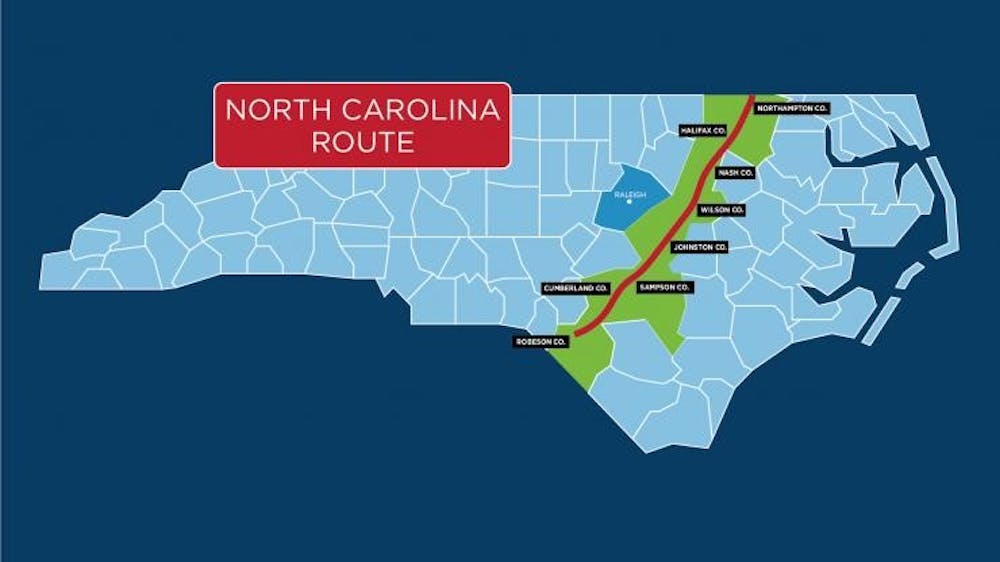The U.S. Supreme Court will decide in the next few months whether to grant a permit allowing a natural gas pipeline to cross underneath the Appalachian Trail in Virginia on federal land. The court heard oral arguments from both sides last week.
The pipeline, known as the Atlantic Coast Pipeline, is an $8 billion project jointly owned by Duke Energy and Virginia-based Dominion Energy Inc., who oversees the pipeline’s construction and operation as the majority partner. It will deliver natural gas from West Virginia through to Virginia and eight counties in eastern North Carolina.
Ann Nallo, spokesperson for Dominion, said the question before the court is whether the U.S. Forest Service has the ability to approve energy infrastructure projects to cross under the Appalachian Trail — managed by the National Parks Service — on federal land.
In December 2018, the 4th Circuit Court of Appeals decided that the Forest Service didn’t have that authority and vacated the permit, siding with several conservation groups represented by the Southern Environmental Law Center (SELC).
According to the SELC, while many pipelines already cross the Appalachian Trail on state-owned, privately owned or certain federal land, the Atlantic Coast Pipeline would be the first to cross under land protected by the National Parks Service, creating the debate over who has jurisdiction.
Nallo said Dominion thought they presented a strong case to the justices and felt decades of precedent were on the company's side. The U.S. Forest Service had been granting permits to cross the trail for more than 50 years, she said.
“An attorney representing the U.S. Solicitor General’s Office also argued at the court on Monday with us,” Nallo said. “Both of us are in agreement that this is U.S. Forest Service land.”
D.J. Gerken is an attorney for the Southern Environmental Law Center, which represented several conservation groups in the court last Monday.
“We are confident about the arguments we made today before the United States Supreme Court, but have no doubt this pipeline is unreasonable, risky and has a long road ahead of it no matter what happens today,” he said in a post-argument press conference.



